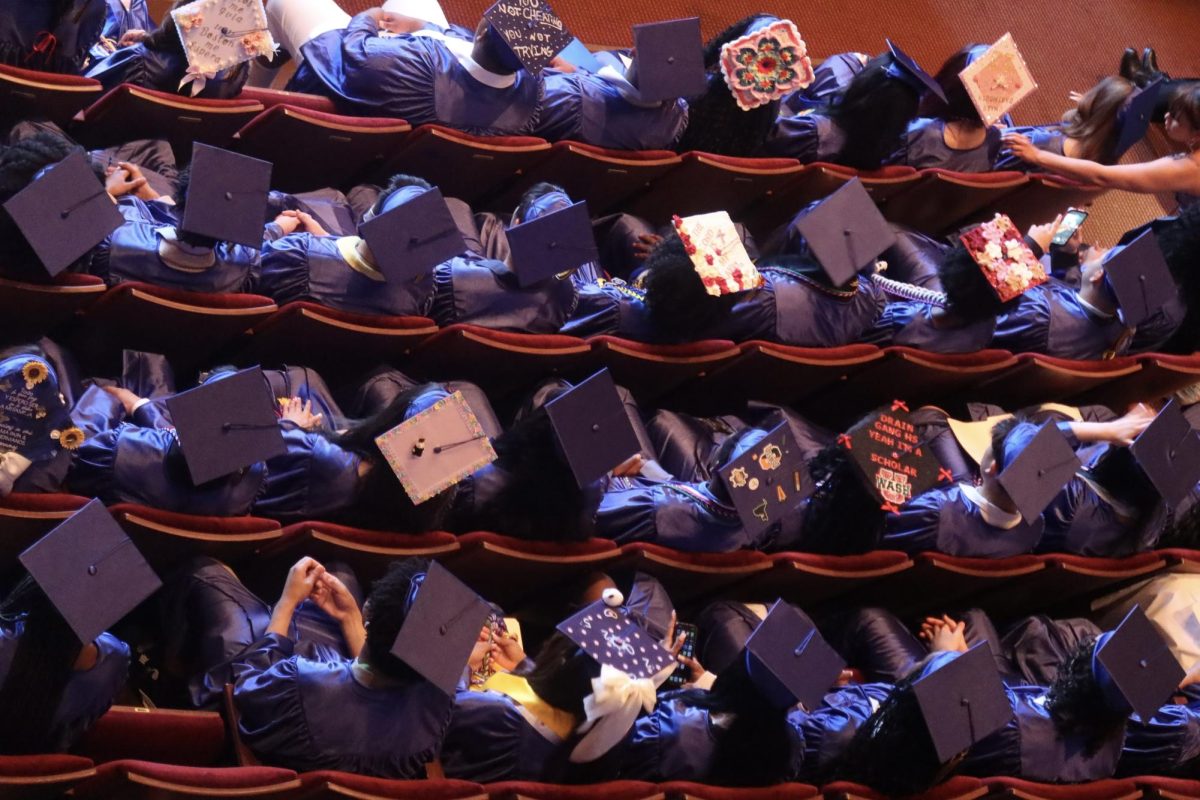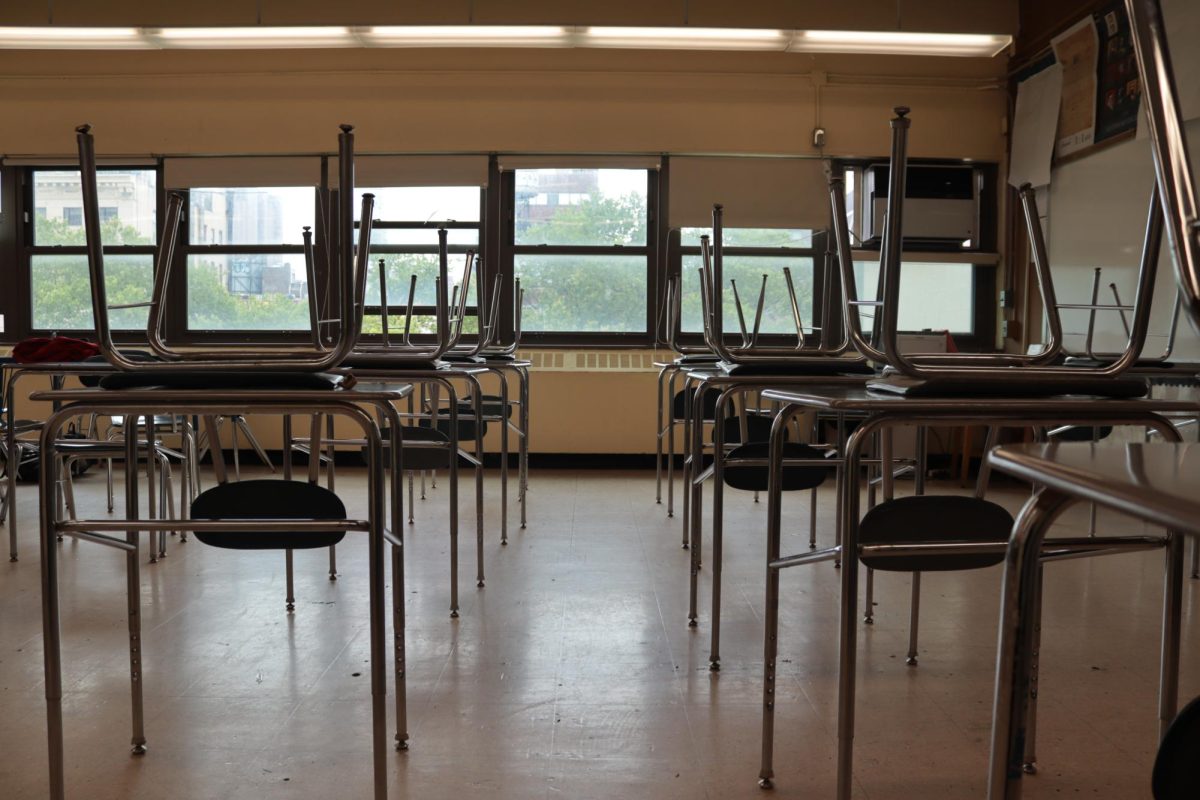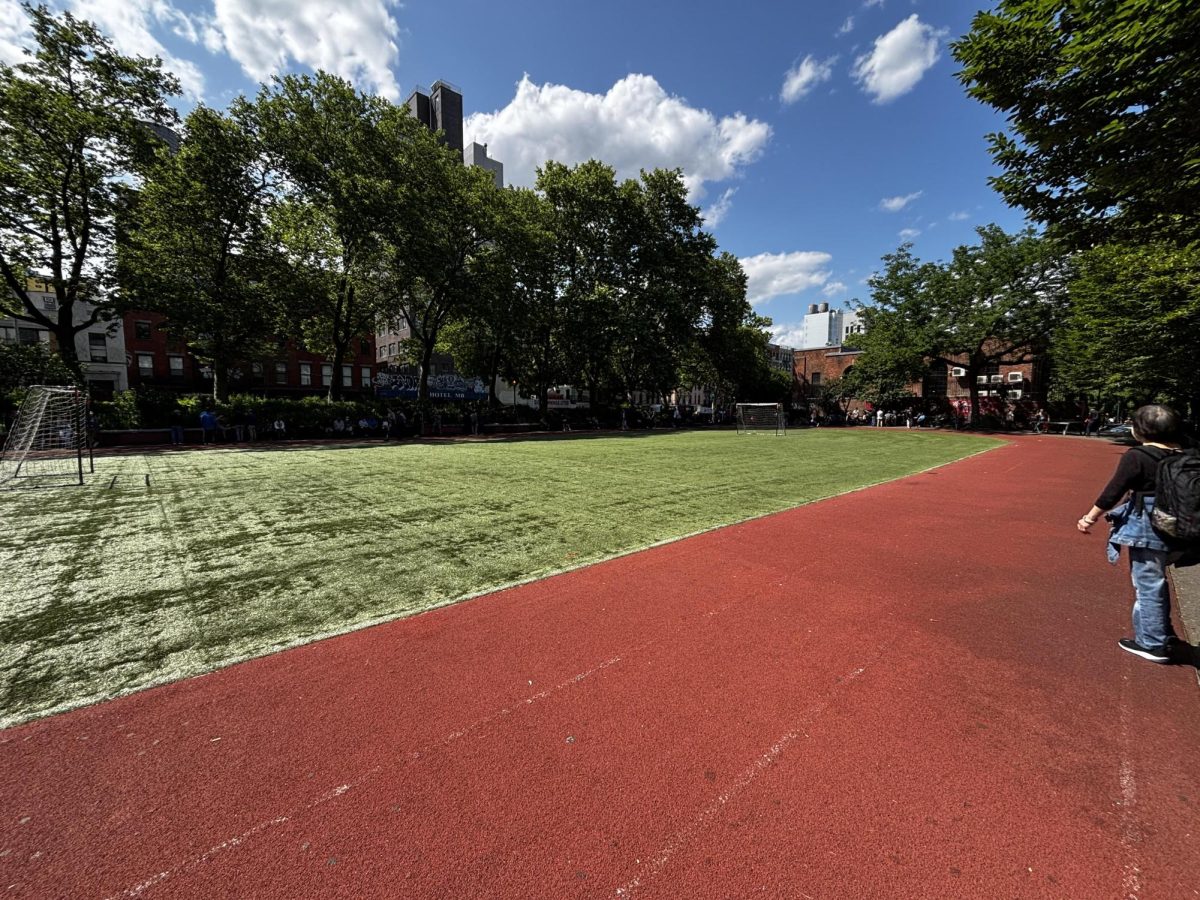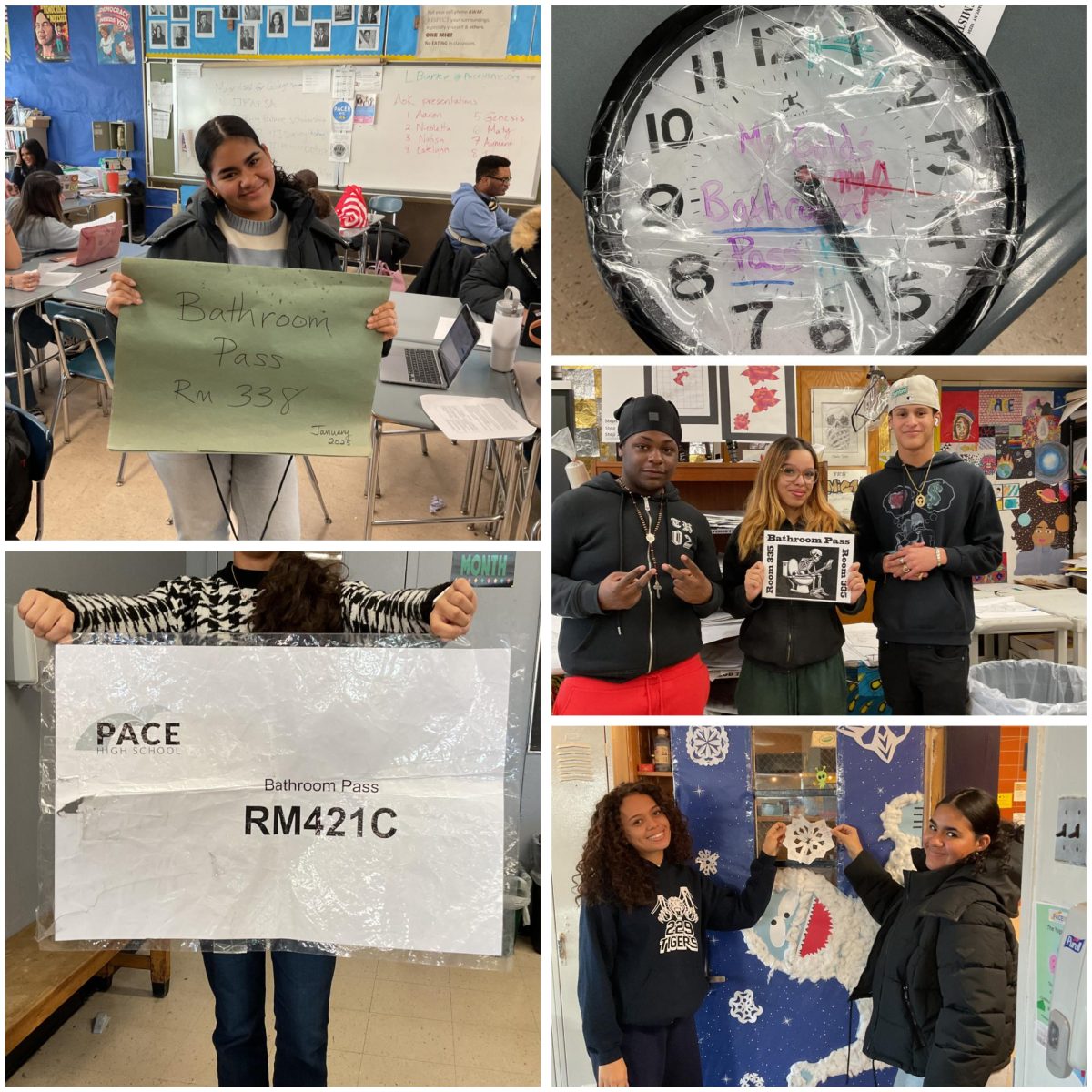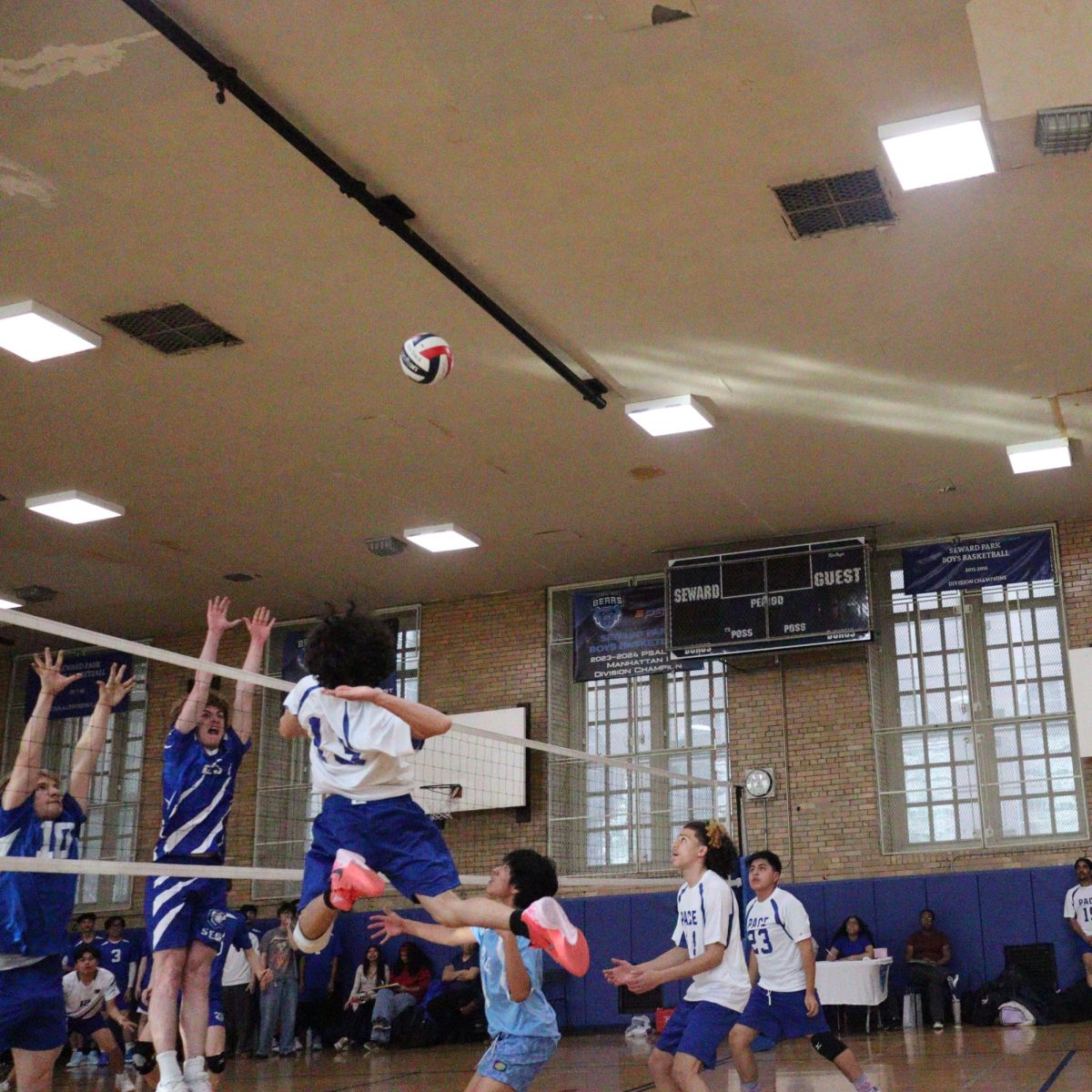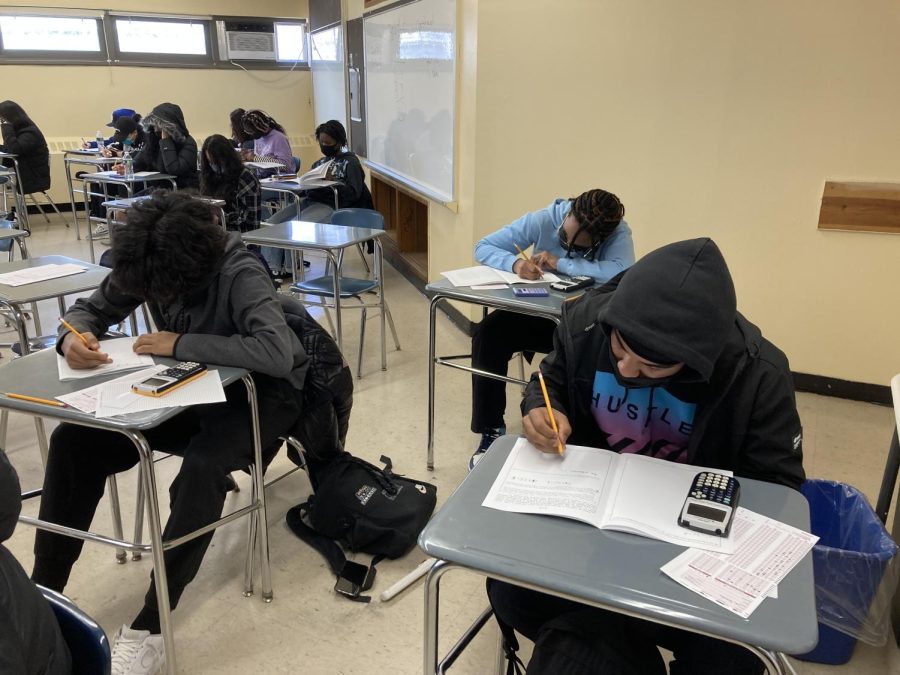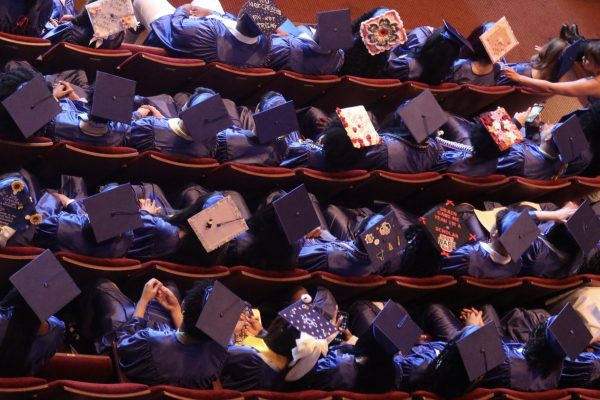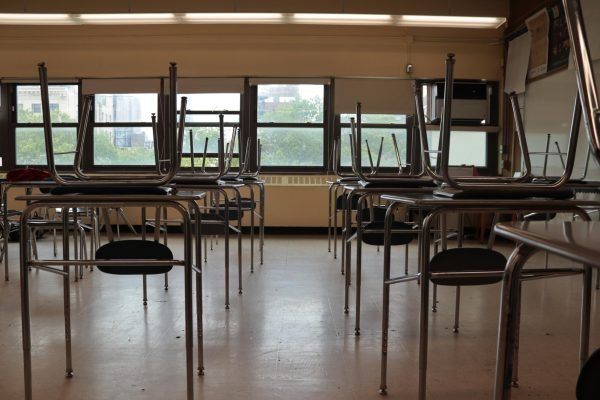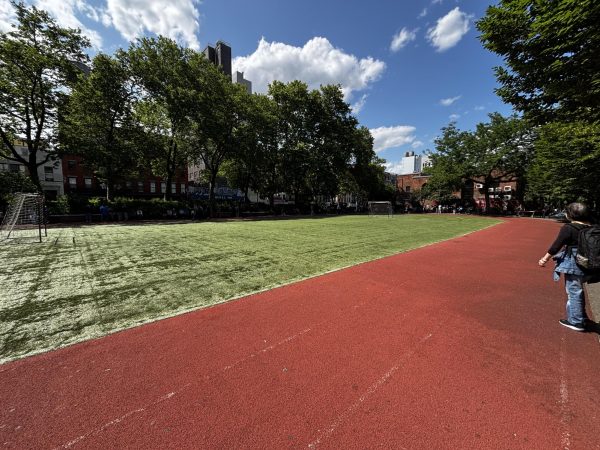Regents Exams Return in June
photo Pacer Staff
Ninth graders Iziah Gonzalez, Winifred Haastrup and Luis Hernandez work on a practice algebra Regents exam.
The New York State High School Regents exams will resume in June for the first time since January 2020.
Teachers and students have begun preparing for the exams which begin on June 1 with the U.S. history test. The other ten exams are scheduled for June 15 to 23.
Kevin Zheng, ninth grade, feels prepared for the living environment Regents exam. “I feel like I’m going to do fine on that because Ms. Papsidero gave us a literacy exam and I got a high score on it.”
Regents exams have been canceled for the past two years because of the pandemic. They were scheduled for Jan. 25-28, but because of the December surge in Covid cases, they were canceled in the middle of December.
According to Assistant Principal DeRosa, any high school student who passed two semesters of a math, science or American history course was given a waiver in that subject’s Regents exam for the past two years and they were not required to take a test for that course. The student needed to have passed four semesters of global history and six semesters of English for waivers in these subjects.
Ms. Papsidero Lee, who teaches living environment, has been teaching her course to prepare students for the June Regents exam. She uses the Regents exam as a guide in her curriculum, but she is concerned that she still hasn’t gotten as far with her students in preparing them compared to past years.
“Coming back from remote learning was difficult,” Ms. Papsidero Lee said. “A lot of kids came back farther behind than they typically would be. They weren’t used to learning in a classroom at all. And then at the end of the first semester, Covid surged again and many kids were out and teachers were out. It got pretty tough to keep up to where I usually am in the curriculum.”
Ms. Papsidero is concerned that scores will not be as high this year. She’s holding out hope that the N.Y. State Department of Education will have students take the Regents exams but not count them as graduation requirements or modify the grading scale even more than they usually do.
All ninth graders at Pace sat for a practice algebra Regents exam on Mar. 23. For most of the freshmen, this was the first standardized test they had taken since sixth grade.
Scarllet Melendez, ninth grade, said the practice algebra test was stressful. “I wasn’t prepared for it. I didn’t know a lot of the questions. I feel like I did bad.”
She admits that taking the practice test helped her see what she needs to study in the coming months. “It has been good to see what I need to work on. It’s making me think about working harder in algebra.”
“I didn’t know that I was going to take a Regents in chemistry. I found out yesterday,” Melendez said.
Kevin Zheng claimed he did okay on the practice algebra test. He noted that he’s studied a lot of the algebra material in middle school even though he was fully remote last year. He felt prepared this year for the work Ms. O’Sullivan has been teaching in class for the Regents exam.
Mr. Alex Jallot, a special education teacher in three global history classes, said in mid-March that he and one of his co-teachers have begun preparing students by working on their essay writing skills.
The Regents will be “a mixed bag” this year, said Mr. Jallot. “Some of the students will fly through them.”
“The students who have been able to still maintain strong academically through the pandemic will do great,” Mr. Jallot said, “but based on what I’m seeing with some students in class, there are definitely going to be students who struggle, especially sitting for three hours.”
As an alternative to state tests, Mr. Jallot said, “We should listen to teachers who know what is going on with their students. We should work with parents and students to figure out better ways of showing what students are or are not learning. We should get rid of Regents exams and use those resources–the millions of dollars spent on Regents exams–for enrichment programs. We could use that money on gathering information from our school community about what students really need and then tailor programs in schools targeting those needs.”
Your donation will support the student journalists of Pace High School. Your contribution will allow us to purchase equipment and cover our annual website hosting costs.



